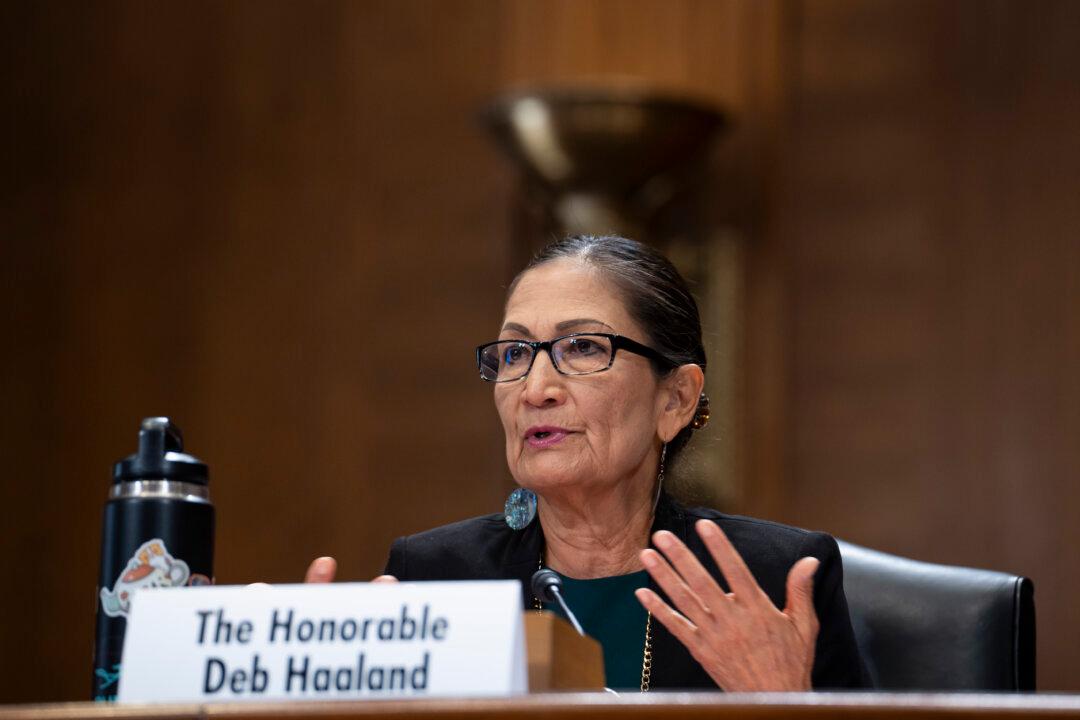The Department of the Interior (DOI) announced a $60 million investment in the Rio Grande Basin for the Biden administration’s water conservation agenda during a May 10 visit to the area.
U.S. Secretary of the Interior Deb Haaland announced the funding, which will be a portion of the $500 million available through the Inflation Reduction Act to drought-stressed areas outside the Colorado River Basin.





